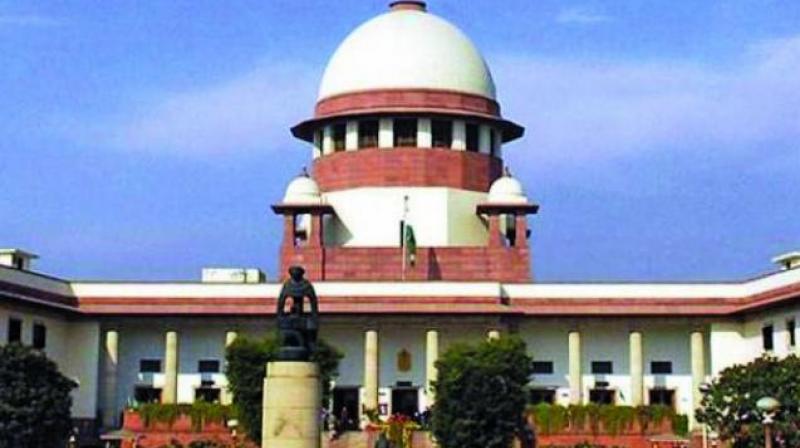Can ‘Janmasthanam’ file plea: Supreme Court

New Delhi: The Supreme Court Thursday asked 'Ram Lalla Virajman', one of the parties in the politically sensitive Ram Janmabhoomi-Babri Masjid land dispute at Ayodhya, as to how the 'Janmasthanam' (birth place of deity) can be regarded as a “juristic person” having stakes as a litigant in the case.
The apex court, hearing the case on the third day, said that so far as Hindu deities are concerned, they have been legally treated as juristic person which can hold properties and institute, defend and intervene in lawsuits.
A five-judge Constitution bench headed by Chief Justice Ranjan Gogoi however asked senior advocate K. Parasaran, appearing for ‘Ram Lalla Virajman’ which itself is a party, as to how ‘Janmasthanam’ can file the case as party.
“Whether the birth place can be held to be a juristic or juridical person. So far as idols of deities are concerned, they had been held to be a juristic person,” said the bench, also comprising Justices S A Bobde, D Y Chandrachud, Ashok Bhushan and S A Nazeer.
Responding to the query, Parasaran told the bench, “In Hindu religion, idols are not necessary for a place to be regarded as a holy place of worship.... Rivers and Sun are also worshipped in Hinduism and birth place in itself can be treated as a juristic person.”
The law suit filed by the deity in the Ayodhya case has also made the birth place of Lord Ram as co-petitioner and has sought claim over the entire 2.77 acre of disputed land at Ayodhya where the structure was razed in 1992.
The bench then referred to a judgement of the Uttarakhand HC in which the river Ganga was held to be a juristic entity entitled to pursue the litigation.

